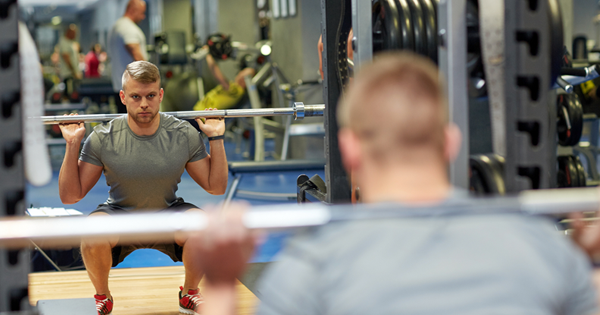Sometimes it’s hard to toe the line between what’s a healthy lifestyle choice and what’s an unhealthy obsessive behavior.
Most of the time, when we think of eating disorders or body dysmorphia, we think of women.
And this is pretty accurate—most of the statistically counted sufferers of body dysmorphia are women.
But there’s an especially strange subset of men—specifically, aspiring bodybuilders, who are in a class all their own. And it’s just as worrying as any other eating disorder.
It’s called “bigorexia,” or more respectfully, muscle dysmorphia, and it causes someone (usually male, sometimes female) to see themselves as too small, too weak, even if they’re muscular and built. The pressure to build more is always there.
And in this culture of “gains” and protein smoothies and overmuscled men in the media, there’s no denying that there’s a similar kind of pressure that women feel from, say, looking at magazine ads.
But can you even compare the two in how dangerous they are?
Well as it turns out, yes. A spokesperson from the Body Dysmorphic Disorder Foundation, Chairman Rob Willson, told the BBC: “There are thousands upon thousands with [muscle dysmorphia], who are going to be excessively concerned about their appearance, having very poor self-esteem, and also feeling very anxious and very worried.
“Sometimes individuals can become very depressed and hopeless and that can even lead to suicide.”
More commonly though, it can lead to steroid abuse and other types of risky behaviors.
One story told by LiftBump is of Oli Loyne, an 18-year-old who abused steroids so badly in his quest to get bigger that by the time he was 19, he’d had two heart attacks and a stroke.
And that’s not even the end of the story. He continued his unhealthy behavior even after these attacks, and at 20, his third heart attack killed him.
His mother believes that this condition happened to him due to societal pressures. Oli was only 5’2”, and his mother feels that he wanted to make up for being short by being as big as possible.
And this is just one story.
If you believe that you or someone in your life has muscle dysmorphia, look for these symptoms:
- An obsessive workout routine that causes panic if missed
- Such obsession with working out that they put it before friends and family and even train when injured
- Abuse of steroids or supplements
- Obsession with appearance
- Irritability, irrational anger, or depression
There are many causes of body dysmorphia, but anyone is vulnerable. Seek help, or assist your love one seek help if needed.





